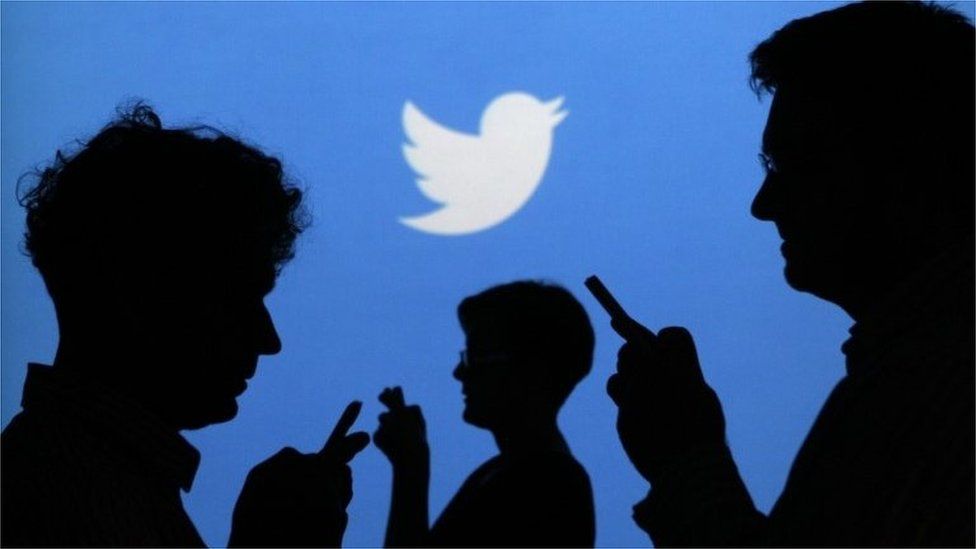One in eight Twitter election shares 'link to junk news'
- Published

One in eight political stories shared on Twitter in the run-up to the general election is from a "junk news source", research suggests.
UK users shared one link from automated bot accounts promoting "junk" information for every four links to professionally produced news, according to the Oxford Internet Institute.
It said the amount of misinformation being spread was "concerning".
The study found content about the Labour Party dominated traffic.
The research was based on an analysis of political news links shared by UK users in the first week of May.
Of those shared, 53% linked to professional news and information sources, while 13% linked to junk news - stories that are misleading or conflate opinion and fact.
The rest of the sample included links to content created by politicians, experts and blogs.
The study found users shared marginally worse quality news and information sources than German and French users, but far better than those in the US.
"It's concerning and shows that social media isn't the best source of political news", Monica Kaminska, one of the report's authors said.
"We still have junk news, bots that are active, misinformation that is being spread.
"[But] it seems to be the case that people are [still] sharing good quality news."
On Twitter, bots are accounts that are run remotely by someone who automates the messages they send and activities they carry out.
The battle against the bots
By Amol Rajan, BBC media editor
After the dramatic and close campaigns that led to Brexit and President Trump's election, there have been concerns about social media eroding democracy.
In particular, there have been allegations about how wealthy individuals or foreign powers buying advert space on social media, or using bots - automated software that mimics human behaviour - to influence how people vote.
But this examination of the quality of news people in Britain can find on Twitter, which admittedly reaches fewer people than Facebook, is reassuring.
It is too soon to state conclusively why a higher calibre of news - that is, more truthful and transparent information - circulates online in Britain, but reasons may include the vastly greater sums spent on campaigning in the US, and the fact that broadcast news isn't regulated as tightly.
Juan Echeverria, a computer scientist at UCL, believes junk news is potentially more influential than overtly fake news.
"If [stories] seem like they are true they can spread more effectively than clearly fake news that people can dismiss immediately.
"The more you read of something even if you're just following a hashtag tweeted by bots, the more influence it has on you.
"Even just scrolling through the same information over and over again can make it seem more credible."
The Oxford Internet Institute report found content about the Labour Party tended to dominate traffic on Twitter.
Bots associated with the Labour Party were more prolific than other political parties, generating a higher overall number of tweets for a similar number of automated accounts.
"It's difficult to say even whether the conversation is positive or negative about Labour", said Miss Kaminska.
"[From] the hashtags that we've selected, I would lean towards saying the conversation is positive.
"[But] in comparison to the American election [bots] are less active.
"We're concerned whether any automated accounts have been involved in propagating junk news and if this could increase."
The research also found that a much smaller percentage of Russian news sources were shared by UK users of Twitter than France and Germany.
Twitter declined to comment on the study.
- Published31 May 2017
- Published2 June 2015
- Published24 January 2017